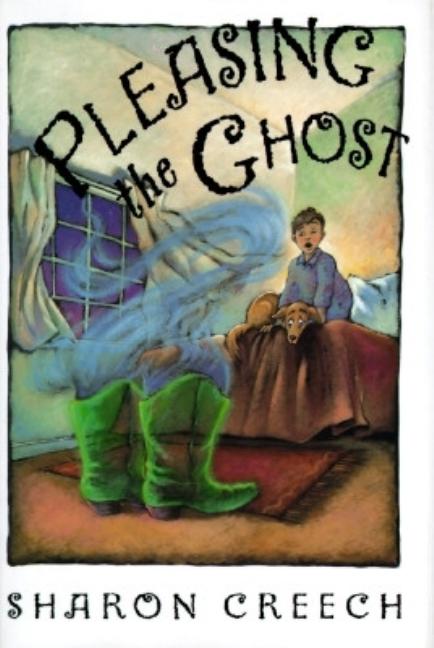Book Description
for Pleasing the Ghost by Sharon Creech
From Cooperative Children's Book Center (CCBC)
Ever since his father died, nine-year-old Dennis has been visited by ghosts who waft through his bedroom window at night on a regular basis, unannounced and uninvited. Some are strangers and some are acquaintances but none is the ghost he especially wants to see -- his father. The ghost of his Uncle Arvie comes close but his visits bring their own set of challenges. A stroke prior to his death had garbled Uncle Arvie's speech, turning even a simple statement into a puzzle that Dennis (or "Dinosaur" as Uncle Arvie calls him) must figure out. His urgent demands for help with a wig pasta, needlelinks and a trampolink make no sense at all initially. But Dennis is able to use context clues to decipher the requests so that he can grant Uncle Arvie his pleases, or favors. Readers will no doubt be just as perplexed as Dennis is with his uncle's speech; however, Creech introduces the unique vocabulary gradually, clarifying and defining through Dennis along the way, and then builds on it so that by the time we reach the end of the book, everything Uncle Arvie says makes perfect sense. In the meantime, we can enjoy the nonsense words he uses for their funny, rollicking sounds, a feature that will make the book a good read-aloud selection for early elementary grades. As she has demonstrated in her previous books, Walk Two Moons (HarperCollins, 1994) and Absolutely Normal Chaos (HarperCollins, 1995), Creech is adept at adding depth to a story through her skillful use of a serio-comic tone. Here she manages to accomplish this in a book for a younger audience by coating a serious underlying theme (the desire to communicate with a loved one who has died) with pure nonsense. While sophisticated readers may catch on to the book's deeper meaning, younger readers and listeners will be no less satisfied as they skim the surface to get the funny side of the story and enjoy the wordplay. (Ages 7-10)
CCBC Choices 1996. © Cooperative Children's Book Center, Univ. of Wisconsin - Madison, 1996. Used with permission.


